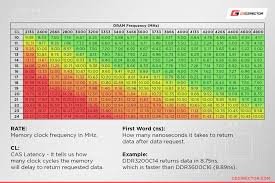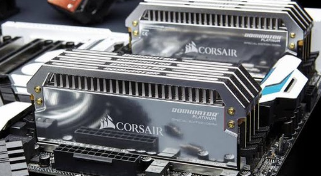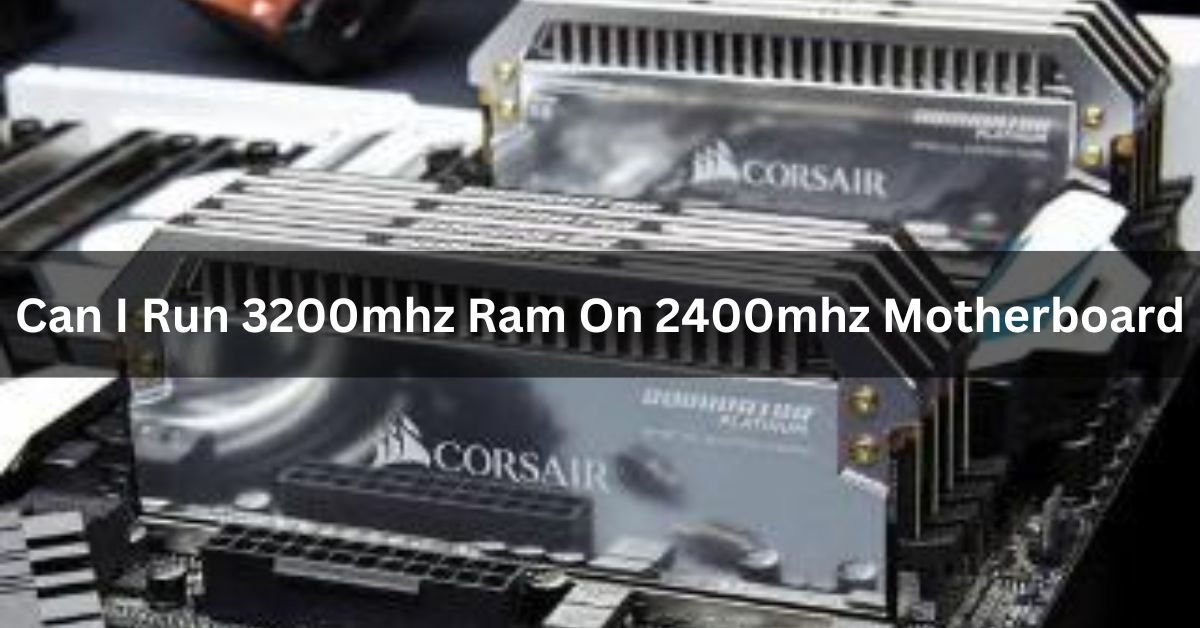In the realm of computer hardware, the quest for optimal performance often leads users to explore various upgrades and configurations. One common inquiry among enthusiasts and casual users alike is whether it’s possible to install and run higher-speed RAM modules on a motherboard that officially supports lower speeds.
No, you can’t use 3200MHz RAM on a 2400MHz motherboard. The RAM speed must match or be lower than the motherboard’s supported speed for compatibility.
In this article, we will discuss “Can I Run 3200mhz Ram On 2400mhz Motherboard”.
Understanding RAM Speeds:
Random Access Memory (RAM) plays a crucial role in the overall performance of a computer system. It serves as temporary storage for data that the CPU needs to access quickly.

One significant factor affecting RAM performance is its operating speed, measured in megahertz (MHz). Higher MHz values indicate faster data transfer rates, leading to improved system responsiveness and multitasking capabilities.
Compatibility Concerns:
When contemplating upgrading RAM, compatibility is a primary concern. Motherboards are designed to support specific RAM speeds, which are often listed in the product specifications.
Attempting to install RAM with a higher speed than what the motherboard supports may result in compatibility issues, preventing the system from booting or causing instability during operation.
Overclocking RAM:
In some cases, users may attempt to overcome compatibility limitations by overclocking their RAM. Overclocking involves adjusting the settings in the computer’s BIOS to increase the operating frequency of the RAM beyond its default specifications.
While this method can potentially allow higher-speed RAM to function on a lower-speed motherboard, it comes with risks and may void warranties.
Risks and Considerations:
Overclocking RAM carries inherent risks, including increased heat generation, reduced system stability, and potential damage to components if done improperly.
It requires careful tweaking of voltage and timing settings, as well as thorough testing to ensure stability under various conditions. Additionally, not all RAM modules are capable of stable overclocking, further complicating matters.
Read: What Is T Sensor On Motherboard – Complete Guide – 2024
Benefits of Running Higher Speed RAM:
Despite the challenges associated with overclocking, there are potential benefits to running higher-speed RAM on a compatible motherboard.
Faster RAM can lead to improved system performance, particularly in memory-intensive tasks, such as gaming, video editing, and virtualization. It allows for quicker data access and smoother multitasking, enhancing overall user experience.
Read: Are Gigabyte Motherboards Good – Ultimate Guide – 2024
How to Check Motherboard Compatibility?
Before attempting to install higher-speed RAM, it’s essential to verify compatibility with the motherboard. This can typically be done by consulting the motherboard’s manual or visiting the manufacturer’s website to review the supported RAM specifications.
Additionally, online forums and community resources may provide insights from other users who have experimented with similar configurations.
Read: Can Motherboards Bottleneck – The Ultimate Guide of 2024!
Steps to Overclock RAM:
For users determined to push the limits of their hardware, overclocking RAM can be a viable option. However, it’s crucial to proceed with caution and follow established guidelines to minimize the risk of system instability or damage.
The process generally involves entering the BIOS setup utility, adjusting RAM frequency, voltage, and timing parameters, and stress-testing the system to ensure stability.
Read: Should I Connect HDMI to GPU or Motherboard – Complete Guide!
Tips for Successful Overclocking:
- Research and understand the capabilities of your RAM modules and motherboard.
- Start with conservative overclocking settings and gradually increase them while monitoring system stability.
- Use reliable stress-testing utilities to assess the performance and stability of your overclocked configuration.
- Ensure adequate cooling for your system components, especially when overclocking, to prevent overheating and potential damage.
Can I use 3200MHz on a 2400MHz motherboard?
No, you can’t use 3200MHz RAM on a 2400MHz motherboard. They have different speeds, like cars on different roads. Your motherboard can’t handle the faster RAM, so it’s like trying to drive a sports car on a country lane.
What if I put 3200MHz RAM in a 2666MHz motherboard?
If you put 3200MHz RAM in a 2666MHz motherboard, the RAM will operate at the maximum supported speed of the motherboard, which is 2666MHz. It won’t utilize its full potential speed but should still function effectively.
Read: Are Msi Motherboards Good – Ultimate Guide – 2024
Does all motherboard support 3200mhz RAM?
Not all motherboards support 3200MHz RAM. It depends on the motherboard’s specifications and compatibility. Before purchasing, check your motherboard’s documentation or specifications to ensure it supports 3200MHz RAM for optimal performance.
Can I mix 2400MHz and 3000MHz RAM?
Yes, you can mix 2400MHz and 3000MHz RAM, but they will both operate at the speed of the slower RAM module, which is 2400MHz in this case, for compatibility and stable performance.
Memory running at 2400MHz (3200MHz modules)?
The memory is running at 2400MHz despite using 3200MHz modules. This discrepancy could stem from motherboard limitations or settings, preventing the memory from reaching its full speed potential of 3200MHz.
RAM Upgrade – 2400 or 3200 MHz?
For your RAM upgrade, consider whether your motherboard supports 3200 MHz. If it does, go for the faster option. If not, stick with 2400 MHz to ensure compatibility and optimal performance.
3200 MHz RAM on a 2400MHz motherboard?

Using 3200 MHz RAM on a 2400 MHz motherboard is possible, but the RAM will operate at the motherboard’s maximum supported speed of 2400 MHz. It won’t reach its full potential speed of 3200 MHz.
3200 Mhz RAM Running At 2400mhz?
The 3200MHz RAM is running at 2400MHz instead. This could be due to motherboard limitations or settings, preventing it from reaching its full speed potential, which impacts overall performance.
Can I Use 3200mhz RAM in 2400mhz Laptop?
No, you cannot use 3200MHz RAM in a 2400MHz laptop. The RAM’s speed exceeds the motherboard’s capability, so it won’t be compatible. Stick to RAM speeds supported by your laptop for optimal performance and stability.
Can I Use 3200mhz RAM in 2666mhz Motherboard Laptop?
Yes, you can use 3200MHz RAM in a 2666MHz motherboard laptop. However, the RAM will operate at the maximum supported speed of the motherboard, which in this case would be 2666MHz, ensuring compatibility and stable performance.
Can I Use 3200mhz RAM in 1600mhz Motherboard?
No, you cannot use 3200MHz RAM in a 1600MHz motherboard. The RAM’s speed exceeds the motherboard’s capability, so it won’t be compatible. Stick to RAM speeds supported by your motherboard for optimal performance and stability.
Can I Use 3200mhz RAM in 2933mhz Motherboard?
Yes, you can use 3200MHz RAM in a 2933MHz motherboard. The RAM will operate at the maximum supported speed of the motherboard, which in this case would be 2933MHz, ensuring compatibility and stability.
Ram Running At 2400 Instead Of 3600.
RAM running at 2400 instead of 3600 means it’s operating at a lower speed than its maximum capability. This could be due to motherboard limitations or settings, impacting potential performance.
Can I Use 2666mhz RAM in 2400mhz Motherboard?
Yes, you can use 2666MHz RAM in a 2400MHz motherboard. The motherboard will automatically adjust the RAM speed to match its maximum supported speed of 2400MHz for compatibility and stable performance.
Motherboard Support 3200mhz Ram.
The motherboard supports 3200MHz RAM. This means it can effectively utilize RAM modules with a maximum speed of 3200MHz for improved performance in your computer system.
Can I Use 3600mhz RAM in 2666mhz Motherboard?
No, you can’t use 3600MHz RAM in a 2666MHz motherboard. The RAM’s speed exceeds the motherboard’s capability, so it won’t be compatible. Stick to RAM speeds supported by your motherboard for optimal performance and stability.
3200MHz RAM on a 2400MHz rated mobo?
Using 3200MHz RAM on a motherboard rated for 2400MHz is possible, but the RAM will operate at the motherboard’s maximum supported speed of 2400MHz, not its full potential of 3200MHz.
Can I use 3200MHz RAM on a 2666/2400/2133 MHz Motherboard?
Yes, you can use 3200MHz RAM on a motherboard with lower speeds like 2666MHz, 2400MHz, or 2133MHz. However, the RAM will operate at the maximum supported speed of the motherboard, which in this case would be 2666MHz.
Can I Replace Ddr4 2400mhz RAM with A Ddr4 3200mhz RAM?
Yes, you can replace DDR4 2400MHz RAM with DDR4 3200MHz RAM, but ensure your motherboard supports the higher speed. The new RAM will run at the maximum speed supported by both the RAM and the motherboard for optimal performance.
Is there any problem if I use 3200 MHz RAM whereas my motherboard supports up to 2400 MHz?
Yes, there could be problems. Using 3200 MHz RAM in a motherboard that supports only up to 2400 MHz might result in compatibility issues or instability. It’s best to stick to RAM speeds supported by your motherboard for optimal performance.
Does it matter if a RAM is set to 3200 MHZ when that RAM is 3600 MHZ?

Yes, it matters. Setting a 3600 MHz RAM to run at 3200 MHz means it’s not running at its full potential. You’re essentially underutilizing the RAM’s capabilities, which could impact performance in tasks that benefit from higher RAM speeds.
FAQs:
1. Can I put 3200MHz RAM in a 2400MHz motherboard?
No, you cannot put 3200MHz RAM in a 2400MHz motherboard. The RAM’s speed needs to match or be compatible with the motherboard’s supported speed for proper functioning.
2. My motherboard supports 2400 MHz RAM. Can I install 3200 MHz of RAM on my motherboard?
No, if your motherboard supports only 2400 MHz RAM, you can’t install 3200 MHz RAM. It’s essential to match the RAM speed with what the motherboard supports for compatibility.
3. Will a motherboard that supports 2400 MHz RAM work with 3200 MHz?
No, a motherboard that supports 2400 MHz RAM likely won’t work with 3200 MHz RAM. The RAM’s speed must match or be compatible with the motherboard’s supported speed.
4. Can I use 2400 MHz RAM with 3200 MHz RAM?
Yes, you can use 2400 MHz RAM with 3200 MHz RAM, but they will both run at the speed of the slower RAM stick for compatibility.
5. Can I use 3200 MHz RAM in a 2400 MHz motherboard?
No, you can’t use 3200 MHz RAM in a 2400 MHz motherboard. The RAM’s speed needs to match or be compatible with the motherboard’s supported speed for proper functioning.
6. Can my motherboard handle 3600 MHz of RAM if on the website it says it can handle 3200 MHz?
No, if your motherboard specifications state it supports up to 3200 MHz RAM, it’s unlikely to handle 3600 MHz RAM reliably. Stick to the specified maximum for compatibility and stability.
7. Can I install a 3600 MHz RAM in a motherboard which supports only 3466 MHz memory?
Yes, you can install a 3600 MHz RAM in a motherboard that supports only 3466 MHz memory. The RAM will run at the maximum supported speed of the motherboard, in this case, 3466 MHz.
8. Is it ok to put RAM of different MHz speeds into one motherboard?
It’s generally not recommended to mix RAM of different MHz speeds in one motherboard. Doing so can cause compatibility issues and may result in reduced performance or system instability.
9. Can I use 2 PC RAM (memory) with different frequencies on my PC?
Yes, you can use two RAM sticks with different frequencies on your PC, but they will run at the speed of the slower RAM stick for compatibility.
10. Can I underclock RAM to use on a motherboard that doesn’t allow over 2400 MHz?
Yes, you can underclock RAM to use on a motherboard limited to 2400 MHz. Adjusting RAM speed lower than its maximum allows compatibility with the motherboard’s speed limit.
Conclusion:
In conclusion, when considering upgrading RAM, it’s crucial to ensure compatibility with your motherboard’s supported speed. Attempting to use higher-speed RAM on a lower-speed motherboard may lead to compatibility issues. While overclocking is an option, it comes with risks and requires careful adjustments. Always refer to your motherboard’s specifications to make informed decisions for optimal performance and stability.
